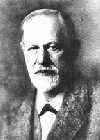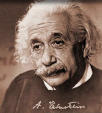Sublimation of instinct is ordsprog
 |
 |
 |
 |
 |
Matthew Fox (1940-)
 |
 |
 |
 |
 |
Antal ordsprog er 2101330
varav 2122549 på nordiska
Ordsprog (2101330 st) Søg
Kategorier (3944 st) Søg
Kilder (201411 st) Søg
Billeder (4592 st)
Født (10498 st)
Døde (3319 st)
Datoer (9520 st)
Lande (27300 st)
Idiom (4439 st)
Lengde
Topplistor (6 st)
Ordspråksmusik (20 st)
Statistik
Denna sidan visar ordspråk som liknar "Sublimation of instinct is an especially conspicuous feature of cultural development; it is what makes it possible for higher psychical activities, scientific, artistic or ideological, to play such an important part in civilized life. If one were to yield to a first impression, one would say that sublimation is a vicissitude which has been forced upon the instincts entirely by civilization. But it would be wiser to reflect upon this a little longer. In the third place, finally, and this seems the most important of all, it is impossible to overlook the extent to which civilization is built up upon a renunciation of instinct, how much it presupposes precisely the non-satisfaction (by suppression, repression or some other means?) of powerful instincts. This ‘cultural frustration’ dominates the large field of social relationships between human beings;we know already that it is the cause of the antagonism against which all civilization has to fight.".
varav 2122549 på nordiska
Ordsprog (2101330 st) Søg
Kategorier (3944 st) Søg
Kilder (201411 st) Søg
Billeder (4592 st)
Født (10498 st)
Døde (3319 st)
Datoer (9520 st)
Lande (27300 st)
Idiom (4439 st)
Lengde
Topplistor (6 st)
Ordspråksmusik (20 st)
Statistik
Denna sidan visar ordspråk som liknar "Sublimation of instinct is an especially conspicuous feature of cultural development; it is what makes it possible for higher psychical activities, scientific, artistic or ideological, to play such an important part in civilized life. If one were to yield to a first impression, one would say that sublimation is a vicissitude which has been forced upon the instincts entirely by civilization. But it would be wiser to reflect upon this a little longer. In the third place, finally, and this seems the most important of all, it is impossible to overlook the extent to which civilization is built up upon a renunciation of instinct, how much it presupposes precisely the non-satisfaction (by suppression, repression or some other means?) of powerful instincts. This ‘cultural frustration’ dominates the large field of social relationships between human beings;we know already that it is the cause of the antagonism against which all civilization has to fight.".